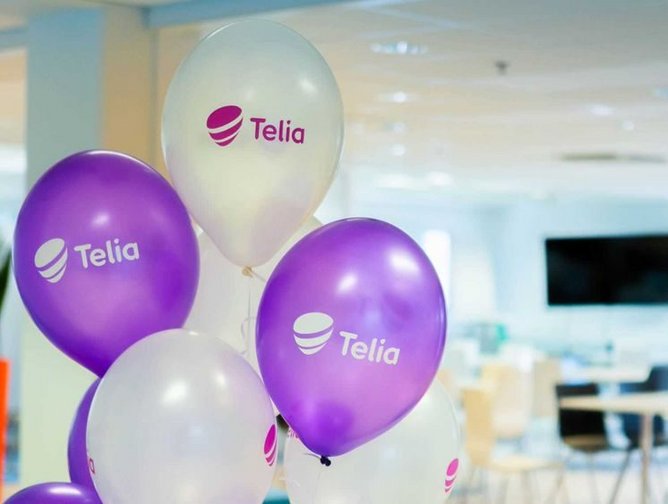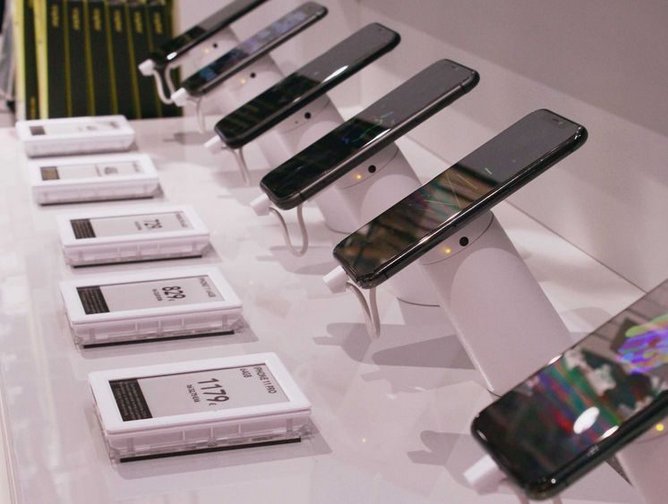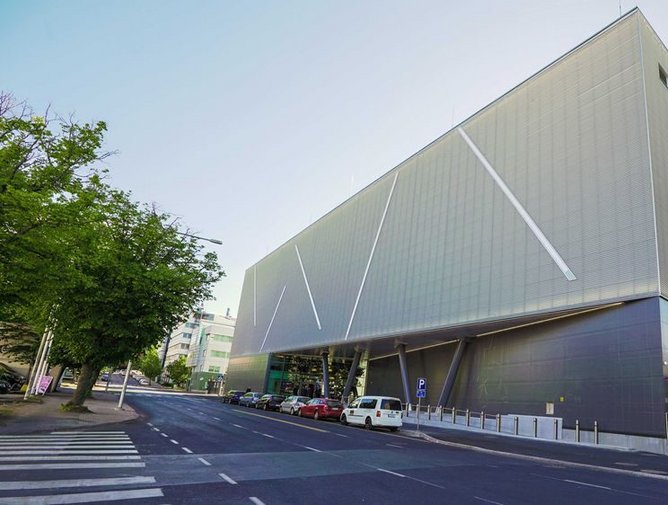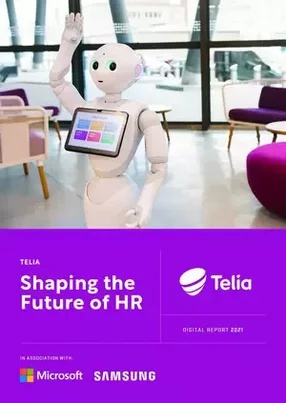The past year has been a challenging one for companies globally. Not many enterprises could say the experience has been positive, as massive upheavals have seen numerous businesses struggle to ride the tidal wave of change.
However, managing the digital transition, new technology and creating a culture of learning and transparency, is something that Kirsi Kantele, HR Director of Telia Inmics-Nebula, embraces.
Despite the challenges due to COVID-19, she believes the digital transformation of Telia Inmics-Nebula was not only, in her words, ‘surprisingly straightforward’ but has also brought benefits to staff, customers and the working environment.
Kantele, who’s strong background in employment law and management has provided her with essential tools for her profession, explains, “I think that many lawyers are quite analytical and structured in their approach and I guess that applies to me as well. I have a strong background in legal HR which is how I started my career in Telia as an employment counsel - so I’m very familiar with the legal issues in the HR field.”
It is this pragmatic and clear-headed stance that has contributed to the company’s digital transition being such a success, although Kantele points out that prior to the pandemic, Telia Inmics-Nebula was already well developed in terms of a flexible working environment.
She says, “In the new normal of working, innovation, social connections and communication can be viewed as a challenge, but I see that there is constant development in technology to help with these issues (for example Microsoft break out rooms) and changes in ways of working.”
Technology, Kantele points out, has been massively instrumental in paving the way for remote and virtual working experiences. “Many of the things that we might have thought were not possible to do in a virtual setting, went surprisingly well this past year,” she says.
“For example, the collaborative workshops and onboarding of employees (the kinds of things you usually do face-to-face) were handled very successfully virtually.”
The day-to-day connections have been a tougher challenge, as innovation and creativity are often the result of dynamic working relationships in a socially connected setting. Though Kantele points out that these issues are far from insurmountable.
“Of course, there are complications when you think about the social connections, innovations and collaborations. You really need to work harder to support them,” she says.
“We adopted a practical hands-on approach by starting wellbeing breaks for employees. These are essentially 15 minute breaks so staff can get their exercise in the afternoons, and also teams can have social coffee breaks. These small changes enable the social connections with others to be maintained. Encouraging a sense of belonging and connection is very important - but I also think technological developments are continually addressing these issues.”
Direction and leadership
The importance of having the right people and partner assets in place to meet the future demands, but also to shape the future, are aspects that are essential to Kantele in her position as HR Director. Human capital, she says, is part of the value chain - and critical to customer satisfaction.
“People function as part of the value chain in delivering the services or products to the customer, and even if we don’t usually have direct contact points with the customer, it's important that we envision that result in all our procedures. We must appreciate that added value to different stakeholders – the customer, as also to our people, owners and society.”
She continues, “I try to be as open and transparent as possible in my leadership. It's essential to have openness and trust. This is possibly an overhang from my legal background in that I like to keep an eye on the small details - and make sure there is always good consistency as much in leadership as there is in operations.”
Kantele believes management roles have been challenged by the new work from home mandates, because hovering in the background is no longer an option.
“In many ways working from home is more efficient because it allows for a better balance between work and social life. I think working remotely puts a positive pressure on leaders too. It means they must have good and efficient processes in place and it encourages transparency in terms of targets. It puts focus on leadership issues. That should be seen as a positive thing.”
On digital transformation
Kantele is a firm advocate of technology, and says in order to adopt digital practices successfully, companies must start with an open mind from the top level. “It's important to have the kind of culture that embraces digitalisation and different types of technologies,” she says.
“And to create that kind of culture, it's essential that the top level management lead by example and be curious of the different possibilities technology can offer us. For example, HR can smooth the transition with training and capabilities. But the next stage is how digitalisation changes the way we work. That’s a big thing that really needs support and focus for teams.”
She continues, “For example in Telia Inmics-Nebula, we have a process in terms of planning ahead - we ask what kinds of changes are we facing in the future through technology? When we move into a more digital world. In that way, we have planned well so we know what we will need and support required.”
Communication, groundwork and teamwork are the keys to success, Kantele says. “Enquiries into how ways of working have changed and how we can plan ahead are critical. Often, it's not only a technology change but a whole set of processes and ways of working that are changing and of course competencies need to be gained, as well as other competencies where time is freed up by technology - so we need to plan ahead and decide where those changes happen.”
Strategic partnerships
Telia Inmics-Nebula is strategically partnered with both Microsoft and Samsung. Kantele describes both relationships as essential - particularly in light of the COVID-19 pandemic.
“They [Microsoft and Samsung] are very important to us. Microsoft and Samsung offer us a strong foundation for digital services and modern, digital workplace solutions and to our customers.”
She says the level of support offered to both Telia Inmics-Nebula and its customers by its partners, has been critical to the company’s successes over the past year particularly.
“Customer expectations in this kind of environment is one that supports employee productivity, employee satisfaction and has a focus on security. We are very focussed on data security and our IT assets. Microsoft workplace solutions combined with our services enables us to offer customers services that help them improve employee productivity and customer satisfaction.
“The technology creates seamless communication across all locations and maintains better security of the data and the assets too.”
The teleco’s strategy is to grow as a managed service provider, explains Kantele. “We are an enabler for modern work, with a strong focus also on end user support. The core of our strategy is valuing our people. Our aim is to be the home of experts in IT services.
“It’s a very important part of how we provide the IT services to our customers – such as the end user support,” she says.
“It is important to make things always a little bit smarter, simpler and key to this is digitalisation. I could use our HR change journey as an example because for us, becoming one company and being part of the Telia family has created a lot of possibilities.
“We changed our HR systems to a common system used in Telia – this change contained a lot of synergies, possibilities to analyse data. We laid the groundwork for even better data-driven decision making. This enabled us to focus even more on transformational leadership issues such as performance management, leadership and competence development.”
Customer-centric approach
It is this strategy that has driven the Telia Inmics-Nebula customer journey. “This is something we aim to do for our customers also,” points out Kantele.
“Enabling them through technology is what matters for each business or function. I think that is the core of what we want to make possible for our customers.
“The pandemic caused a huge change for us and for many of our customers. It meant working from home in order to keep safe. We were able to support our own employees as well as employees of our customers to make this transition. Our End User Support made great strides in supporting our customers, and our own employees. That was evident when they won the Service Desk of the year award in Finland for the second time. Our partners also played a key role in this success.”
The question of security for customers as well as within Telia Inmics-Nebula is a priority for the company, which has created innovative solutions that monitor security.
Kantele says, “Cyber security is part of our everyday life and the services we offer to our customers. Cyber security threats are rapidly growing due to Covid-19- related work changes. Company employees are working mostly remotely and devices and systems used are not always optimised for that purpose. The use of cloud systems has increased, but quite often these solutions are being used on basic settings. This opens up different kinds of security threats too.
“We have developed a new offering to check customers' environments with several different kinds of health checks. This enables us to understand what must be fixed and also fix security related issues there may arise. We have also strong managed services offering to maintain and continuously develop our customers cloud systems.
Working practices and COVID-19
The past 12 months has led to what are now seen as irreversible working practices globally. Kantele believes the working from home mandate won’t change dramatically as the pandemic passes.
“I think it's highly likely that we will resort to a hybrid way of working,” she says. “Part of our work will be carried out remotely, because it's efficient and preferred by many people. But there will also be occasions where face to face processes will occur. A combination of both these working realities will be very positive.”
She adds that the pandemic will have lasting reverberations on the mindset of employees too, in their independence when it comes to work.
“Self leadership has developed. And this will continue to increase. Working remotely has meant that people have had to find their own ways of being productive. They have had to create a balance between working from home and getting their job done.
“I think that a big leap in digitalisation has occurred. We see a lot of possibilities regarding how we can run everyday activities remotely. Sometimes these revelations can be quite small.
“For me personally, I noticed how efficient and collaborative workshops can be when everyone attends via Microsoft teams. Or, in personal life how well yoga classes can be organised virtually. A sense of community can be achieved virtually as well.”




